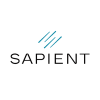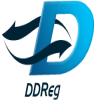Dive Brief:
- With more positive topline data in hand, GlaxoSmithKline's subsidiary ViiV Healthcare intends to file another two-drug regimen for HIV with regulators by the end of the year.
- On Thursday, ViiV announced positive readouts from a pair of pivotal Phase 3 studies, GEMINI 1 and 2. The studies showed pairing lamivudine and dolutegravir, the active ingredient in GSK's Tivicay, had a similar effect on HIV control compared to the standard triplet of Tivicay plus Gilead Sciences' Truvada — itself a two-drug regimen consisting of tenofovir disoproxil fumarate and emtricitabine.
- GSK said none of the patients who failed on lamivudine/dolutegravir developed treatment-emergent resistance. Analysts noted, however, that it will take longer than the 48 weeks of data included in the topline results to see whether resistance truly isn't a concern.
Dive Insight:
GSK's undergone quite a turbulent transformation in the last few years.
It completed an asset swap worth billions of dollars in 2015, trading the company's cancer drug portfolio for Novartis' vaccines business and a majority stake in a consumer health joint venture between the big pharmas.
Two years later, the company was under new leadership and looking to make up for disappointing returns on some of its fresh-to-market drugs. As a result, GSK announced plans to exit or find a partner for more than 30 of its R&D programs.
More recently, it made an attempt — albeit unsuccessful — to buy Pfizer's consumer health unit, only to later buy Novartis' piece of their joint venture for $13 billion.
Amid that upheaval, though, HIV therapies remained a priority. And rightfully so; ViiV drugs like Tivicay and Triumeq (abacavir, dolutegravir, and lamivudine) have consistently helped lift GSK revenues in the last half decade.

GSK has kept hammering away at bringing new HIV products to market as well, in large part because of rival drugmaker Gilead.
Gilead gained approval earlier this year for its once-daily three-drug tablet Biktarvy (bictegravir/emtricitabine/tenofovir alafenamide), securing a broad label that covers adults with HIV who have no antiretroviral treatment history, as well as those who have been virologically suppressed on a stable antiretroviral regimen for at least three months and have no history of treatment failure or resistance to Biktarvy's component drugs.
While Biktarvy is already racking up prescriptions, analysts acknowledge GSK's lamivudine/dolutegravir is also well positioned to snag market share. Jefferies analyst Ian Hilliker expects peak annual sales of $1.5 billion for the combo.
On the GEMINI 1 and 2 data, Hilliker wrote in a June 14 investor note that it "will help GSK defend its integrase inhibitor franchise against competition from Gilead’s Biktarvy.
"The key opinion leaders we have spoken to see the dolutegravir/lamivudine combination as a more attractive initial therapy or switch strategy as lamivudine has a very good toxicity profile and generic versions are available, which should reduce cost," he added.
Others maintained a more tepid reaction, such as fellow Jefferies analyst Michael Yee, who wrote in his own note on Gilead that consensus forecasts had for some time anticipated positive readouts for dolutegravir/lamivudine.
"[T]he key according to doctors is whether resistance could develop over time ... and because real-world compliance and practice is not going to be the same as in a GSK clinical trial where [patients] are followed closer and compliance higher with everything tracked," he said.
GSK intends to present more complete data from GEMINI 1 and 2 at an upcoming scientific meeting.














